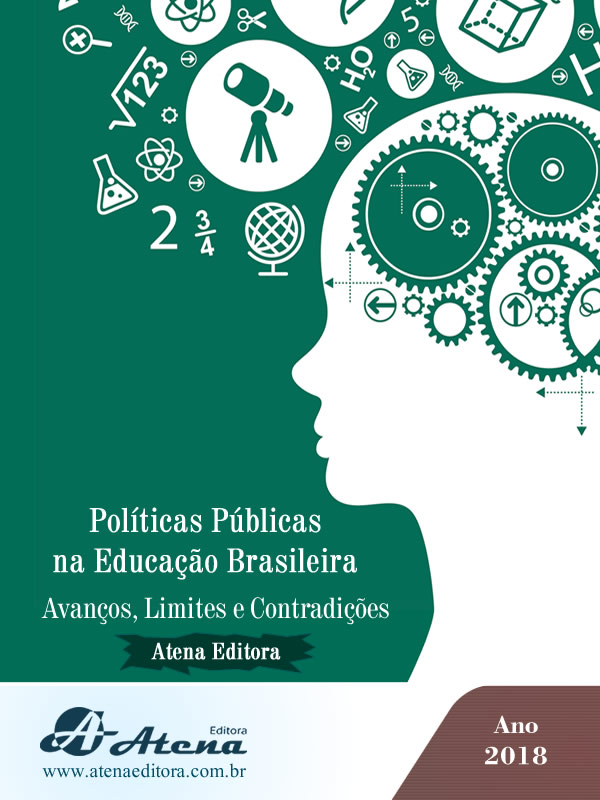
INTERDISCIPLINARIDADE NO BRASIL EM PROGRAMAS DE PÓS-GRADUAÇÃO
As mudanças ocorridas no contexto mundial têm fomentado uma série de
reflexões sobre a universidade, seja no contexto da graduação ou da pós-graduação.
O estudo objetivou identificar o número de Programas de Pós-Graduação
Interdisciplinar no Brasil, bem como, tecer reflexões sobre a interdisciplinaridade no
espaço acadêmico. O procedimento metodológico aplicado neste trabalho seguiu
dois percursos distintos, um direcionado ao método de pesquisa qualitativo, quando
se elaborou uma revisão teórica e uma análise documental, e outro ao compilar os
dados da Coordenação de Aperfeiçoamento de Pessoal de Nível Superior,
abordando-se o método quantitativo, a partir do Sistema de Informações
Georreferenciadas (GeoCAPES). Os resultados mostraram que o crescente número
de programas de pós-graduação no Brasil está relacionado aos investimentos em
educação, na formação de pesquisadores em universidades brasileiras, públicas e
privadas, dialogando com demandas da sociedade. Apesar dos números indicarem
elevado desenvolvimento da educação brasileira, destaca-se uma assimetria na
distribuição entre as regiões brasileiras. A interdisciplinaridade, de fato, teve um
avanço quantitativo em todo o país, liderando as áreas de avaliação, sendo a
modalidade com maior número de cursos Stricto Sensu. Constata-se que esse
crescimento também foi qualitativo, haja vista que na última Avaliação Quadrienal
da CAPES, esta área foi a que teve mais cursos avaliados. Conclui-se que os 335
cursos de pós-graduação interdisciplinares identificados são de grande importância
para a sociedade, contribuindo com a ampliação da visão científica sobre as
múltiplas dimensões do conhecimento, ofertando assim uma nova identidade ao
pesquisador, tornando-o capaz de compreender e agir em uma perspectiva
multidisciplinar.
INTERDISCIPLINARIDADE NO BRASIL EM PROGRAMAS DE PÓS-GRADUAÇÃO
-
DOI: Atena
-
Palavras-chave: Universidade; Interdisciplinaridade; Educação.
-
Keywords: University; Interdisciplinarity; Education.
-
Abstract:
The changes taking place in the world context have fostered a series of
reflections about the university, whether in the context of undergraduate or
postgraduate studies. The study aimed to identify the number of Interdisciplinary
Post-Graduation Programs in Brazil, as well as to make reflections on
interdisciplinarity in academic space. The methodological procedure applied in this
work followed two different paths, one directed to the qualitative research method,
when a theoretical revision and a documentary analysis were elaborated, and
another one when compiling the data of the Coordination of Improvement of
Personnel of Higher Level, addressing the quantitative method, from the
Georeferenced Information System (GeoCAPES). The results showed that the
increasing number of graduate programs in Brazil is related to investments in
education, training of researchers in Brazilian universities, public and private,
dialoguing with society's demands. Although the figures indicate high development of
Brazilian education, an asymmetry in distribution among Brazilian regions stands out.
The interdisciplinarity, in fact, had a quantitative advance in all the country, leading
the evaluation areas, being the modality with greater number of Stricto Sensu
courses. It is observed that this growth was also qualitative, since in the last CAPES
Quadrennial Assessment, this area was the one that had the most courses evaluated.
It is concluded that the 335 postgraduate interdisciplinary courses identified are of
great importance for society, contributing to the broadening of the scientific vision on
the multiple dimensions of knowledge, thus offering a new identity to the researcher,
making him / her capable of understanding and act in a multidisciplinary perspective.
-
Número de páginas: 15
- Maria Ayrlles Macêdo
- Francisco Mário de Sousa Silva
- Ademar Maia Filho
- Luiza Maria Valdevino Brito
- Zuleide Fernandes de Queiroz


